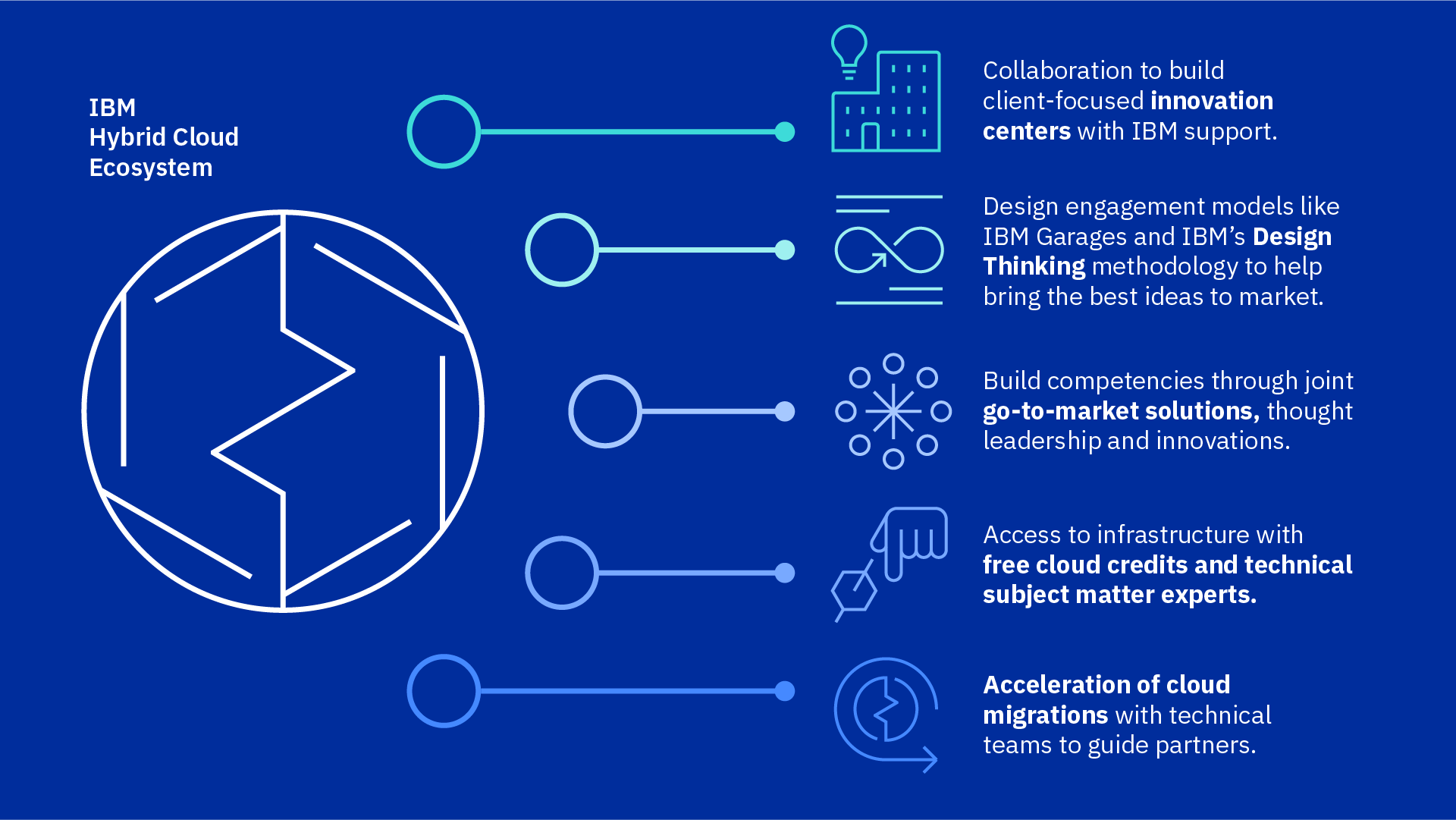IBM Cloud
Jagan Karuturi Q&A: How IBM’s Open Hybrid-Cloud Ecosystem Is Driving Clients’ Digital Transformation
October 1, 2020
IBM has expanded its Hybrid Cloud Ecosystem Initiative through a new collaboration with HCL Technologies (HCL) to help clients accelerate their digital transformation by migrating mission-critical workloads to run on IBM’s open hybrid cloud platform.
Key to the new ecosystem agreement is HCL’s plan to establish an IBM Cloud Practice to help client enterprises in highly regulated industries—including financial services and healthcare—develop open, cloud-native solutions. Those solutions will leverage IBM Cloud Paks, Red Hat OpenShift, IBM public cloud and IBM Cloud for Financial Services, to help clients advance their hybrid cloud journeys.

Jagan Karuturi
IBM VP of Cloud Developer Services Jagan Karuturi oversees the company’s ecosystem relationships with global systems integrators (GSIs). Here, he explains how IBM’s partnership with HCL fits into the larger IBM hybrid cloud platform strategy, and why building this platform on Red Hat OpenShift and other open technologies is essential.
How are IBM and HCL continuing their work co-creating and co-innovating on IBM’s open hybrid cloud platform?
IBM will provide HCL employees with training and skills development to facilitate co-creation workshops with clients. GSIs such as HCL are an integral part of our ecosystem strategy. IBM has been working closely with GSIs for more than a decade. In the last six months, in response to the digital imperatives created by the global COVID-19 pandemic, these partnerships have been quickly evolving to place a particular emphasis on using the disruptive technologies of cloud, AI, IoT and blockchain.
Now, more than ever, there is a need to co-create and co-innovate to help clients understand the impact of digital transformation on business and society and build an outcome-focused response that will help them emerge smarter from the pandemic crisis.
Why are partner ecosystems important?
IBM’s most recent Institute for Business Value (IBV) Innovation in Ecosystem survey provides some indication as to why ecosystems are important and the challenges they face. The survey found, for example, that businesses with high engagement in ecosystems report a 15% greater contribution to revenue from innovation than businesses with low-to-moderate ecosystem engagement. Yet, only 24% of executives across all organizations said they use partners outside the organization as an innovation channel.
The good news is that, according to the 2020 IBM Global C-Suite study of more than 13,000 executives worldwide, 60% of CEOs expect signficant growth in business partnering. Although only 46% of executives in the Innovation in Ecosystem survey said their organizations derive more than 10% of revenue from innovation activities, that percentage of executives is expected to grow to 75% by 2021.
How is IBM’s hybrid cloud ecosystem supporting GSIs?
We’re helping clients modernize workloads with Red Hat OpenShift for any cloud environment. Collaboration with the technology ecosystem has been an integral part of IBM’s growth strategy.
IBM relies on the ecosystem for its scale and innovation. In turn, partners count on IBM to continually bring the best technology and industry expertise to market. Such expertise can be found in the IBM Cloud for Financial Services, for example. It consists of a growing ecosystem of financial institutions and technology providers worldwide, including Bank of America, BNP Paribas and MUFG Bank.

Why is it important that IBM’s hybrid cloud ecosystem promotes solutions built atop open technologies?
Our open hybrid cloud approach is the dominant force driving change in the industry. A cloud infrastructure that is built on open standards and open source technologies such as OpenShift promises a level of standardization that allows different platforms to operate together seamlessly.
Clients find that choosing a hybrid cloud approach is two-and-a-half times more valuable than relying on public cloud alone, when you consider factors such as innovation, development time and portfolio optimization.
Who are some of the key players among GSIs in IBM’s hybrid cloud ecosystem?
Our ecosystem of partners, together with our open hybrid cloud platform, and deep industry expertise will enable us to accelerate clients’ digital transformations as they move more mission-critical workloads to the cloud. To this end, we have forged a growing coalition of best-of-breed GSIs, including HCL, Deloitte, EY, Infosys, Wipro, Tata Consultancy Services (TCS), Tech Mahindra and Persistent Systems.
What are some specific solutions IBM is developing and deploying through its hybrid cloud ecosystem?
Deloitte chose IBM Cloud to host its Population Health Management (PHM) solution in Brazil. It’s part of an expanded alliance in that country combining IBM Cloud, Data Analytics and AI technologies with Deloitte's cutting-edge methodologies and industry expertise, to offer tailored services that can support local companies’ digital transformation.
Another example of our GSI hybrid cloud ecosystem work is our announcement with Tata Consultancy Services (TCS) to help clients accelerate their digital and cognitive enterprise transformations to IBM public cloud using IBM Cloud Paks. TCS will establish an IBM Enterprise Cloud Architecture Unit, which will include technical professionals from both companies.
As IBM chief executive officer Arvind Krishna recently emphasized during our second-quarter 2020 earnings report, IBM is committed to building an enduring hybrid cloud platform with the help of its growing ecosystem of partners. That platform will serve as a powerful catalyst for innovation for our clients and the world.